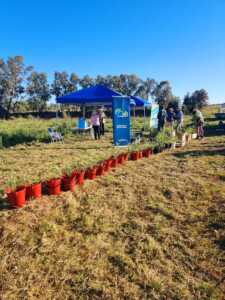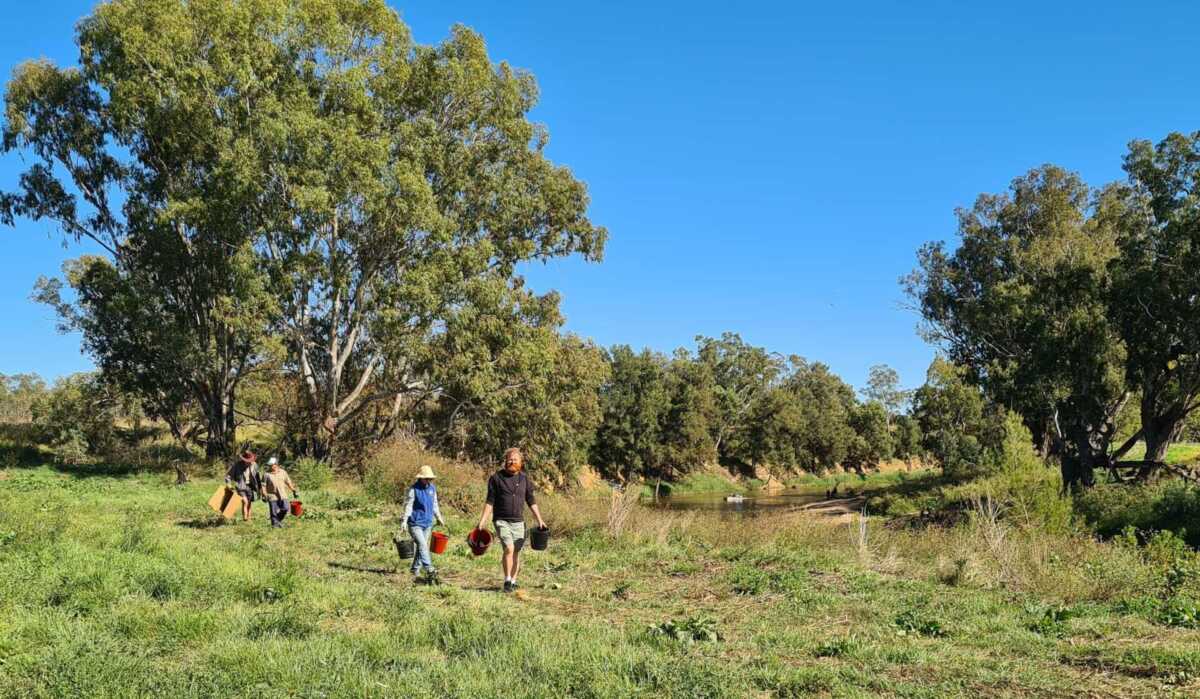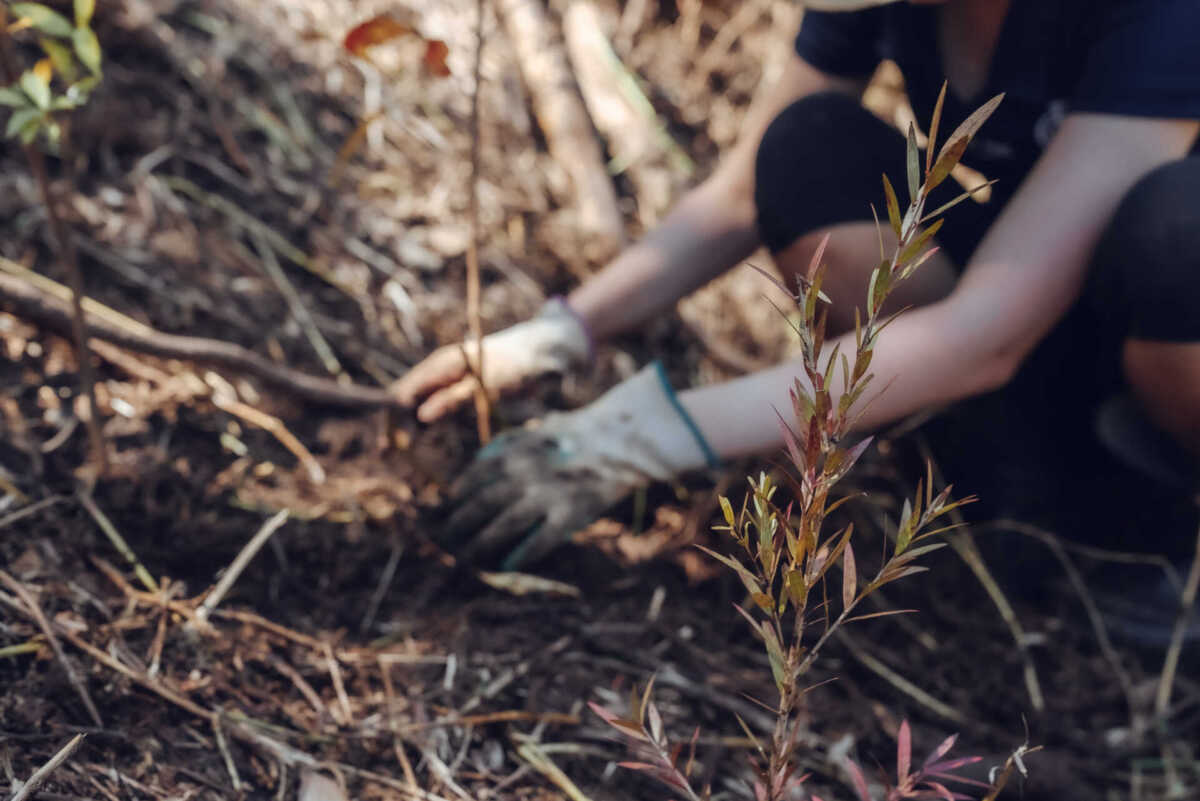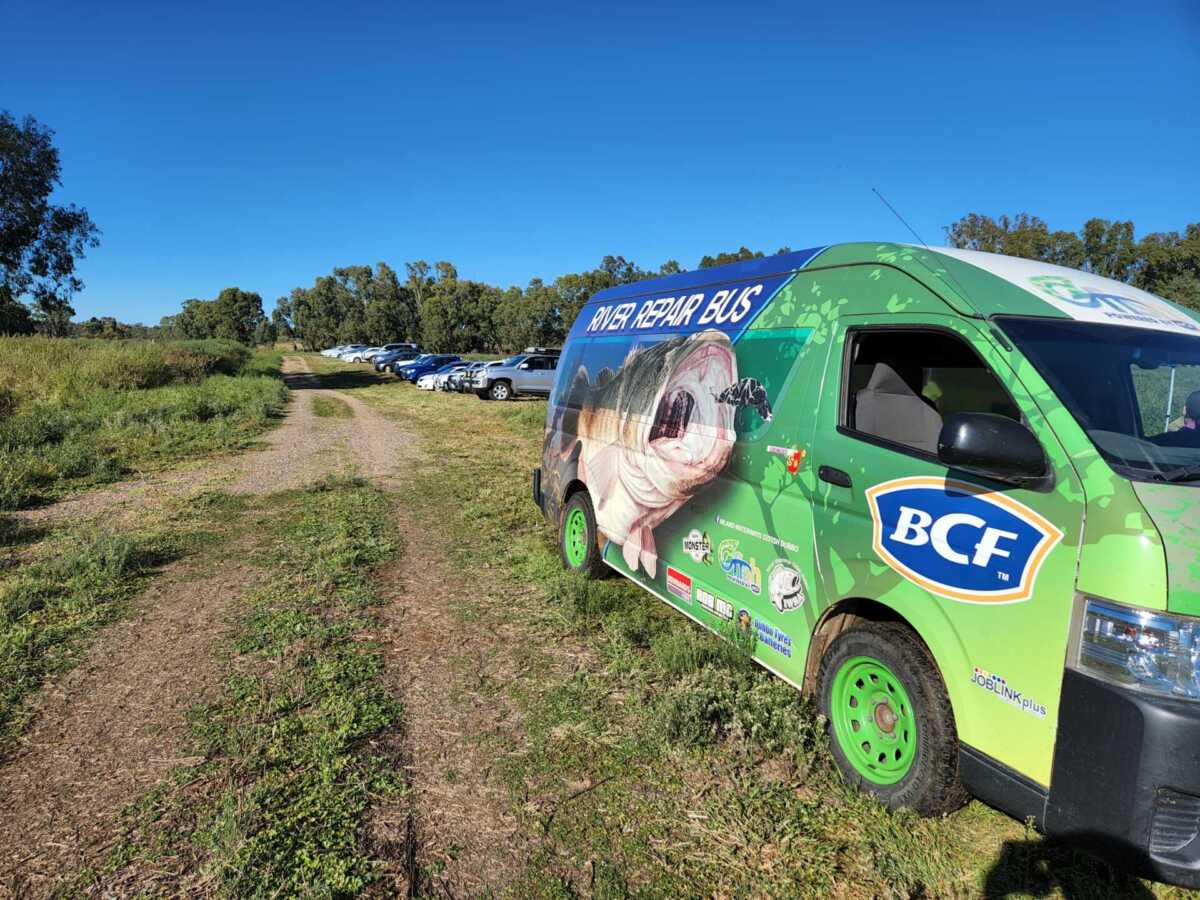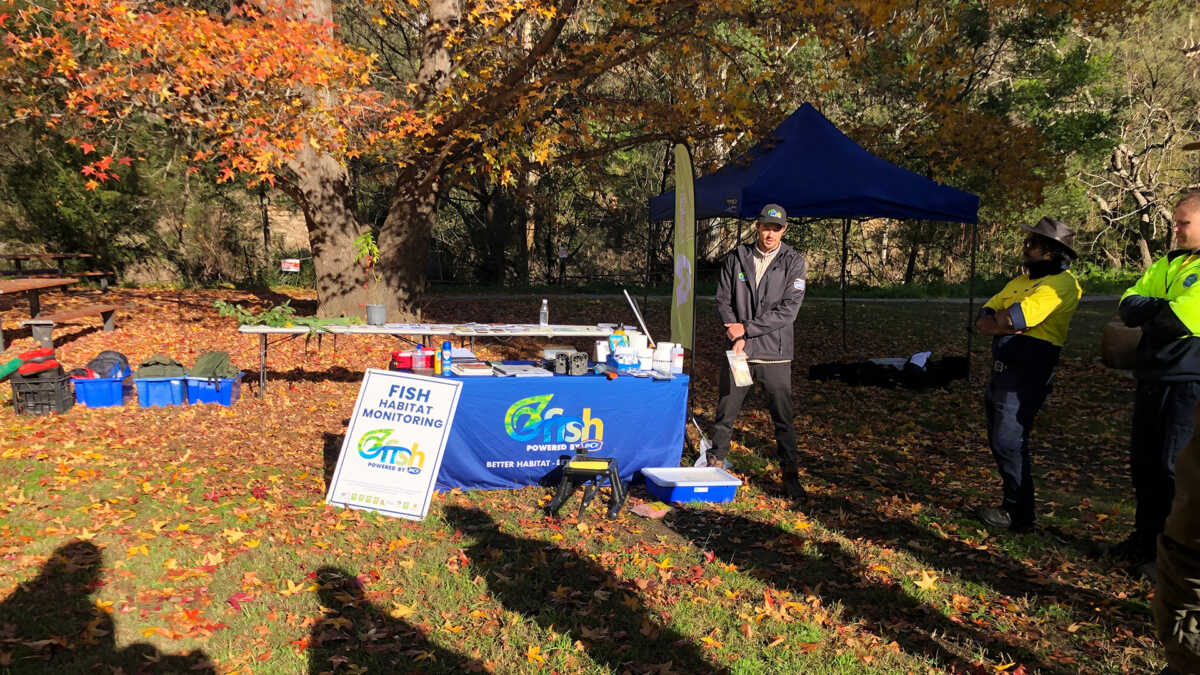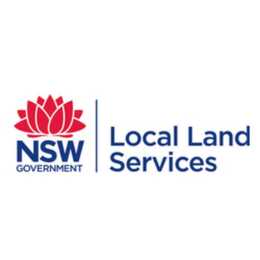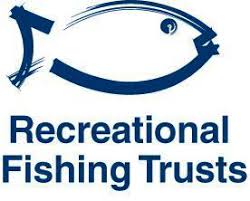OzFish Inland Waterways and Wellington Chapters are working with Mid Macquarie Landcare, to reduce erosion and improve water quality along the Wambuul Macquarie River. This will support native fish species, wildlife and vegetation.
Restore 2kms of riverbank
1,200 native trees and shrubs to be planted
The impact of drought and floods
The drought that affected the Wambuul Macquarie River during 2017-2019 is one of the most severe on record and it had a significant impact on the river’s riparian zone. The loss of native trees means that the riverbanks are more prone to erosion, the water quality is affected by increased sediment runoff, and native fish are deprived of a source of food and shade. A series of floods throughout 2022 have accelerated the erosion of riverbanks and constant high flows have saturated riverbanks, causing large shade trees to fall into the river.
During the drought, low flows limited or prevented the breeding of some native fish species. Threatened native fish species in the sections of river the project is working on include: freshwater catfish, silver perch, and trout cod.
Working together to put it right
Restoring the river’s riparian zone following the period of drought and floods will help the habitat recovery and support future breeding opportunities for the affected species.
The 1,200 native trees and shrubs that will be planted will provide a source of shade and food too, with insects falling from their branches into the waterway. Any branches that also fall into the river will become snags and provide fish with an important source of shelter in which to rest, breed, and wait for prey.
The native vegetation being restored will include river red gum, casuarina cunninghamianna, bursaria spinosa, callistemon sieberi, acacia dealbata, and acacia cultriformis.
Volunteers from OzFish Inland Waterways and Wellington Chapters, Mid Macquarie Landcare, Twin Rivers Fishing Club, Western Paddlers NSW and Wellington Kayak Club, will carry out the planting. The steep riverbanks at points means some of the planting will need to take place from canoes.
River Repair Bus rolling out the support
The work will be supported by the local OzFish River Repair Bus, based out of Dubbo. The bespoke vehicle will enable volunteers and the required materials to reach the project sites quickly and efficiently.
The project will also be the first to include participants from OzFish’s new Aboriginal River Rangers program in the region. This provides the opportunity for two people to gain qualifications and experience while volunteering on the project, including: first aid certificate, weed control certificate (AQF3), and experience in weed control and identification, and native tree planting.
Indigenous contractors will also be employed to prepare the site for tree planting, slashing weeds and drilling holes for the plants.
The impact of grazing
Most of the project area is Travelling Stock Reserves (TSRs), and OzFish has discussed with Local Land Services how to work around the impact of stock on tree plantings. The Falls is now recreational use only, while at Scabbing Flat Reserve, trees will be planted on the steep banks that stock can’t access.

